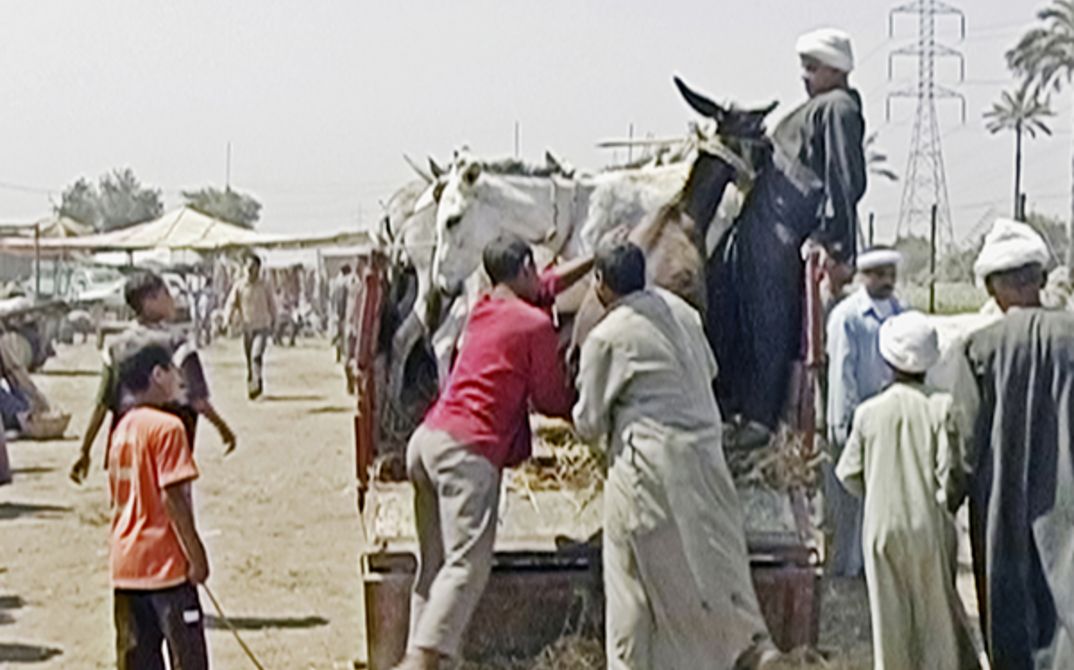90 min. Arabic, English, German, French.
This is the third part of Ayreen Anastas and Rene Gabri’s attempt to revisit and unwork Anastas’s film initiated in 2007, which sought to translate and put into play Nietzsche’s “Thus Spoke Zarathustra” onto the contemporary Arab World. Rather than merely adapt or restage the ideas from this seminal work, the film instead continues an expanded effort to rethink life and art today through this encounter between gestures, insights, visions, prophecies drawn to this proper name Nietzsche and certain conditions, questions, afflictions attributed to territories demarcated as Arab. The film defies categorization, as it is neither essay nor performance, neither documentary nor fiction; it is instead an attempt at a clearing for something which is refused and refuses a designated place, people, time – yet it is what is most desired.
*This film is enacted and edited in simultaneity with its screening. And for this reason the two screenings will diverge considerably.
**The silent green edition can be considered an appendix to the film that will be screened at Arsenal. For the first time, the artists will attempt to make visible and give an account of this way of simultaneously making and unmaking film.
***In one of the notebooks covering the period just after completing his Zarathustra, Nietzsche writes what seems an untimely impression of BORN OF THE * * * : Let us be suspicious of all seeming “simultaneity”! Time fragments insert themselves here, which can only be called small according to a crude standard, e.g., our human standard of time; but in abnormal circumstances, e.g., as hashish smokers or in a moment of life-threatening danger, even we humans have a sense of how in one second of our pocket watch a thousand thoughts can be thought, a thousand experiences experienced. When we open our eyes the visible world stands there apparently immediately: but in the meantime something tremendous has happened, multifarious things have occurred: – first second third: but here the physiologists should speak.
Original quote from: Friedrich Nietzsche. Nachlaß 1884 – 1885, Kritische Studienausgabe in 15 Bänden, Band 11 (August–September 1885), ed. Giorgio Colli and Mazzino Montinari, de Gruyter: Berlin/New York 1967.
Ayreen Anastas and Rene Gabri distrust the biographical. The tendency of the biography to veer toward a specific form of identity and life, in which the potency of living and writing devolve into fulfilling a function. Released momentarily from this function, whatever could be called the coefficient of art or poetry, would allow even a biography to say something other than its predetermined genre, to avoid a fate built into the category. What would a biography be if the subject or subjects it purports to describe were unhinged from the restrained logic of interiority/exteriority, cause/effect, will/action, origin/finality? Leaving aside momentarily the embarrassment induced by “success,” this biography may ask “what is an accomplishment in a life?” and “does it reside with and is it attributable to the person?” Where do the conditions of support, the air, the water, the diet, the historic, social, political, and geographic forces come to play? And what if life is perceived as a weaving of events, dashes, jottings, becomings, moments where something may come to existence momentarily or burst the buttresses of recognition, rather than be seen as a monotonous continuous line of narrative with that depressing arc of a beginning then a middle, concluding with an end? A biography, short as this, may not answer these questions, but its refusal to fulfill its objective already clears it as potential space of revocation.
